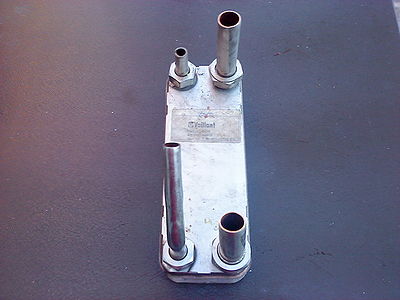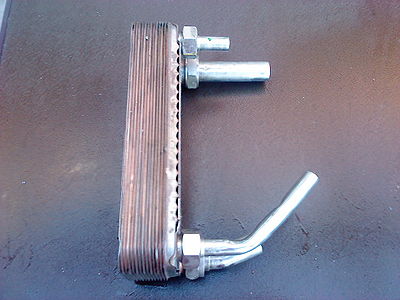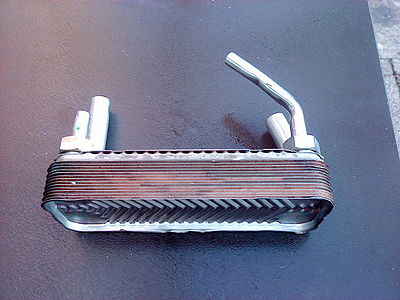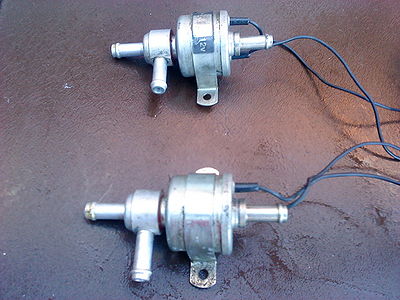Difference between revisions of "Heat exchangers and solenoid valves"
| Line 3: | Line 3: | ||
These are the essential parts required when building a twin-tank system. | These are the essential parts required when building a twin-tank system. | ||
| − | The vehicle is started on mineral Diesel, and then the valves switch over to a veg tank when the engine | + | The vehicle is started on mineral Diesel, and then the valves switch over to a veg tank when the engine reaches full temperature - the heat exchanger is used to heat the vegetable oil before it reaches the injection pump, using engine coolant. |
| − | Before stopping the engine at the end of a journey, the system must be "flushed" with mineral Diesel, making it safe to re-start from cold. | + | Before stopping the engine at the end of a journey, the system must be "flushed or Purged" with mineral Diesel, making it safe to re-start from cold. |
<gallery caption="Click pictures to enlarge" widths="400px" heights="300px" perrow="2" align="center"> | <gallery caption="Click pictures to enlarge" widths="400px" heights="300px" perrow="2" align="center"> | ||
Revision as of 00:40, 8 December 2010
These are the essential parts required when building a twin-tank system.
The vehicle is started on mineral Diesel, and then the valves switch over to a veg tank when the engine reaches full temperature - the heat exchanger is used to heat the vegetable oil before it reaches the injection pump, using engine coolant.
Before stopping the engine at the end of a journey, the system must be "flushed or Purged" with mineral Diesel, making it safe to re-start from cold.
- Click pictures to enlarge
Rotary-Motion 21:50, 5 December 2010 (UTC)




